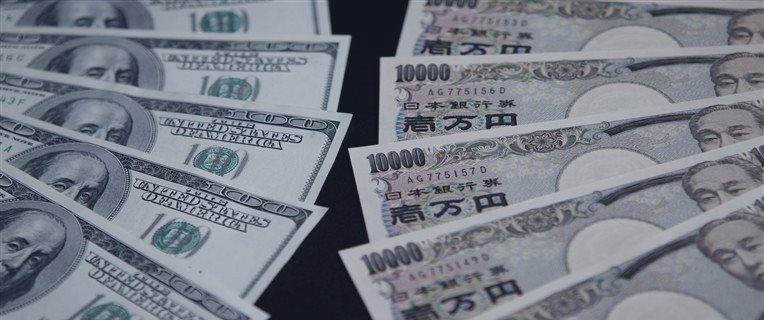
Yen, rising vs all major peers, approaching 3-month high against euro
The yen gained against all its major peers, as the steepest rout in Chinese equities since
2007 drove demand for shelters.
Japan’s currency approached a three-month high against the euro, since shares of Chinese brokerages slipped after regulators took measures to rein in margin trading.
Today the yen was the biggest gainer among 10 developed-nation currencies tracked by Bloomberg Correlation-Weighted
Indexes. It rose 0.4 percent, the franc slid 1.1 percent, while
the dollar was little changed. U.S. financial markets will be
closed today for Martin Luther King Day.
The yen rose 0.3 percent to 117.13 per dollar at 6:54 a.m. in London from Jan. 16, and gained 0.4 percent to 135.44 per euro.
The Swiss franc fell against all 16 major counterparts following a surge last week after the central bank’s decision to abandon the currency’s cap versus the euro. The shared currency was little changed amid speculation the European Central Bank will announce additional stimulus measures at a meeting this week. The franc dropped 0.7 percent to 86.46 centimes per dollar, after surging 21 percent on Jan. 15.
After the Shanghai Composite Index slid as much as 8.3 percent Demand for the yen grew after. Citic Securities Co. and Haitong Securities Co., two of the brokerages targeted by regulators, fell by the 10 percent daily limit. The stock gauge’s 30-day volatility advanced to the highest level in five years, as Bloomberg reports.
On Jan 22, ECB policy makers will meet on Jan. 22 to discuss introducing new stimulus, including quantitative easing, a move that may add to pressure for the franc to climb against the euro. On Jan. 15, the SNB scrapped the 1.20 francs per euro cap on its exchange rate.
The euro will trade near parity to the franc over the next six months before rising gradually to 1.05 in 12 months on “slow but steady normalization in the Eurozone,” UBS Group AG strategists including Beat Siegenthaler in Zurich wrote in a research report to clients yesterday. The franc at parity would make the currency more overvalued versus the euro than at any other time in the past 30 years, according to UBS.
A gauge of the dollar held its biggest gain in two weeks after a report on Jan. 16 showed U.S. household confidence surged on a strengthening job market and lower fuel costs.
The Bloomberg Dollar Spot Index, which tracks the U.S. currency against 10 major peers, was little changed at 1,139.16 after climbing 0.2 percent on Jan. 16. it closed at 1,147.54 on Jan. 8, the highest in data going back to 2004.
“Nothing could be clearer than the current economic and policy divide” between the U.S. and Europe, David De Garis, a senior economist at National Australia Bank Ltd. in Melbourne, wrote in a note to clients. As the Federal Reserve “ponders rate lift-off and U.S. consumer sentiment hits its highest level for 11 years, the ECB last week has been putting together a QE plan that will get some sort of approval from Germany.”
Tomorrow the Bank of Japan starts a two-day meeting to observe progress on stimulus after it boosted an already unprecedented bond-buying program in October. Japan’s 10-year bond yields fell to a record low of 0.205 percent today.
As the BOJ is unlikely to change policy, traders may sell the yen if the central bank cuts its price outlook because of falling oil prices, Toshiya Yamauchi, a senior analyst in Tokyo at Ueda Harlow Ltd., a margin-trading-services provider, wrote in a note to clients.
A key level for the dollar is 118 yen, which is the strike price for expiring options contracts this week with a combined notional value of $3.3 billion, according to Tamara Henderson, an economist at Bloomberg LP in Singapore. Other currencies trading near strikes on large options contracts against the greenback expiring this week include the euro, Australian dollar, and yuan, Henderson wrote in research.


